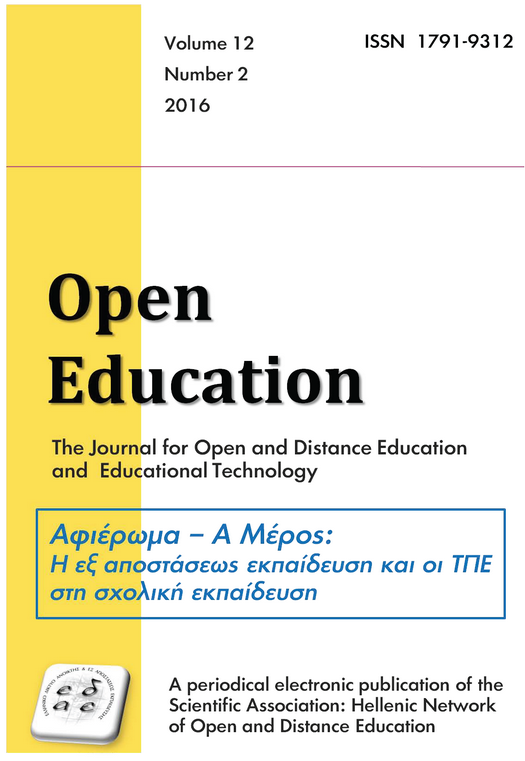Social Media in Greek K-12 education: A research model that explores teachers’ behavioral intention

Abstract
During the last decade we have witnessed a rapid growth of Web 2.0 technologies and especially the so-called online social media. Many people, from every age group but especially teenagers, participate in online communities, making new friends and exhibiting themselves and their interests in a huge international audience. It is extremely important for educational practitioners and researchers to successfully incorporate the dynamics of web 2.0 and social media in their practices. This is especially true for the teachers of K-12 education. The main aim of this study is to examine the factors that may affect teachers’ behavioral intention to use social media in their classes. Very little is known from teachers’ perspective and empirical work is very limited, especially from Southern European countries. This research was setup in order to develop and test a seven-factor model to explain the Greek teachers’ behavioral intention to use social media in their classes. Findings reveal that Experience, Perceived Usefulness and Trialability have a significant impact while Subjective Norms and Perceived Ease of Use have a more weak impact on teacher’s behavioral intention.
Article Details
- How to Cite
-
Georgakainas, B., & Zaharias, P. (2016). Social Media in Greek K-12 education: A research model that explores teachers’ behavioral intention. Open Education: The Journal for Open and Distance Education and Educational Technology, 12(2), 90–102. https://doi.org/10.12681/jode.10864
- Issue
- Vol. 12 No. 2 (2016)
- Section
- Section 1
Copyright Notice
Authors who publish with this journal agree to the following terms:
Authors retain copyright and grant the journal right of first publication with the work simultaneously licensed under a Creative Commons Attribution Non-Commercial License that allows others to share the work with an acknowledgement of the work's authorship and initial publication in this journal.
Authors are able to enter into separate, additional contractual arrangements for the non-exclusive distribution of the journal's published version of the work (e.g. post it to an institutional repository or publish it in a book), with an acknowledgement of its initial publication in this journal.
Authors are permitted and encouraged to post their work online (preferably in institutional repositories or on their website) prior to and during the submission process, as it can lead to productive exchanges, as well as earlier and greater citation of published work.


